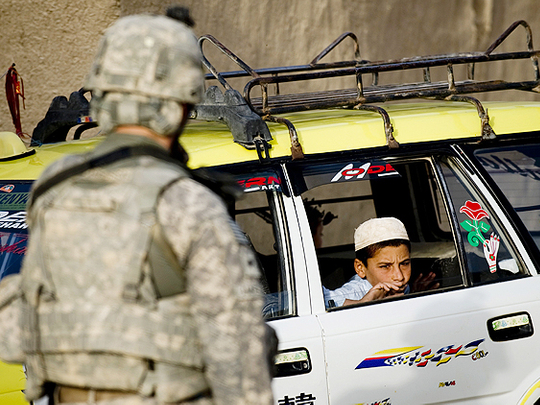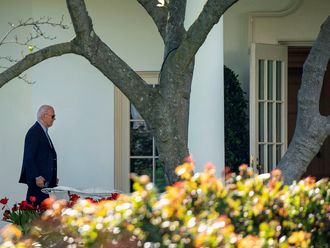
Toronto: The latest fall out from the monumental leak of classified Afghan war documents led Canada's Foreign Affairs Minister to announce, on Monday, that they could endanger Canadian troops in Afghanistan.
Lawrence Cannon denied suggestions, made during a press conference, that the Federal government has misled Canadians in any way about how bad the situation is for the 2,700 Canadian military personnel in Afghanistan. He chose only to condemn the sensational leak of documents to online whistle blowing site Wikileak.org.
"We have certainly not misled the Canadian public in any way, shape or form," Cannon said, calling the government's handling of information on Afghanistan "extremely transparent". "This is about leaked US documents, and yes, our government is concerned that operational leaks could endanger the lives of our men and women in Afghanistan," he added.
Meanwhile, the White House has called the disclosures "alarming” and it has been suggested they could further complicate US President Barack Obama's strategy at a time of mounting doubt over the war effort.
While Pakistan's covert support for the Taliban has been reported for years, experts say that the new revelations about this support, contained in the documents, could add to existing scepticism over the efficacy of US engagement with Pakistan.
"The documents underscore the depth of Pakistani support [for the Taliban] and frustrations within the American military about that," said former CIA analyst Bruce Riedel, now with the Brookings Institution, a Washington think tank. "This definitely makes it more complicated for the Obama administration," added Riedel, who led a White House review of Afghanistan and Pakistan policy early last year.
And it has been suggested that the revelations could endanger US counter terror networks in the Afghan region, and damage information sharing with US allies who are questioning whether they can trust America to keep secrets.
Indeed the torrent of more than 91,000 secret documents, one of the largest unauthorised disclosures in military history, has already sent the Obama administration scrambling to assess and repair any damage to the war effort, either abroad or in the United States. The material could reinforce the view put forth by the war's opponents in Congress that one of the nation's longest conflicts is in a hopeless state of stalemate.
Still, the leaks are not expected to affect passage of a $60 billion (Dh220.38 billion) war-funding bill. Despite strong opposition among liberals, who see Afghanistan as an unwinnable quagmire, House Democrats must either approve the bill before leaving at the end of this week for a six-week vacation, or commit political suicide by leaving troops in the lurch in war zones overseas.
The Pentagon is also looking at possible damage on the ground in Afghanistan.
"Someone, inadvertently or on purpose, gave the Taliban its new `enemies list,"' declared Democratic Republican Jane Harman, who said the White House indicated the disclosures compromised a number of Afghan sources.
White House spokesman Robert Gibbs emphasised that the documents covered the period before President Barack Obama ordered a major increase in US troops fighting in Afghanistan, and the administration denied they would cause any policy shift in the fight against Taliban insurgents.
However, despite the furore over publication of the reports, the information has not revealed any fundamentally new problems in the war effort. Military officers, current and former, described the documents as mostly tactical spot reports, including hunches about possible suspects and bomb plots that could not be verified. Some of the reports contain errors; others appear to be based on flimsy evidence. However much of the material is anything but encouraging.
Underscoring the difficulties the United States faces, the documents include the first publicly released indication that the Taliban has used portable surface-to-air missiles against US helicopters. One report on a June 2005 incident said a Black Hawk helicopter used evasive measures to avoid getting hit east of Kandahar by what its crew chief identified as a portable missile.
The documents also report potential Iranian support of an Afghan terror organisation. Colonel Dave Lapan, a Defence Department spokesman, said the military probably would need "days, if not weeks" to determine "the potential damage to the lives of our service members and coalition partners”.
However WikiLeaks founder Julian Assange said the release of documents was just the beginning. He told reporters in London that some 15,000 more files on Afghanistan were still being vetted by his organisation.
In Islamabad, the Pakistani Ministry of Foreign Affairs called the leaked documents "misplaced, skewed and contrary to the factual position on the ground." And it said that US-Pakistani counterterrorism cooperation against "our common enemies" would continue.












